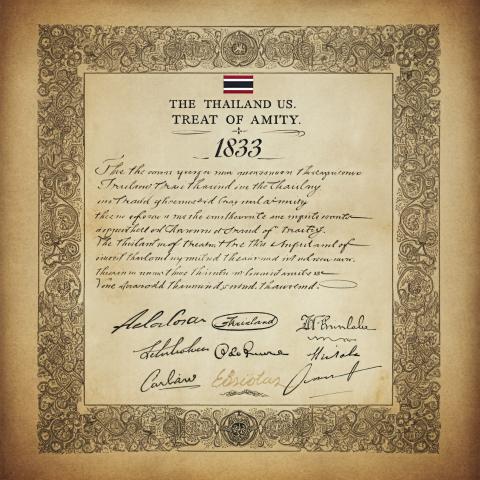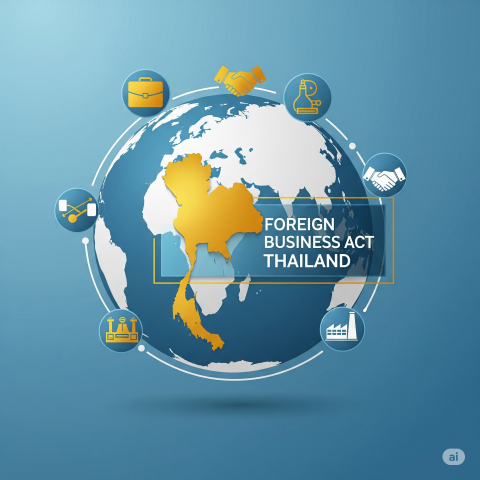Expert Legal Services for the US-Thai Treaty of Amity
Unlock exclusive business opportunities in Thailand with the US Treaty of Amity. PS Law & Business is a premier law firm in Bangkok, providing expert legal guidance for American citizens looking to leverage this unique agreement. We specialize in helping US entrepreneurs establish and operate their businesses seamlessly in Thailand, navigating the complexities of international and local law.
What is the US-Thai Treaty of Amity?
The Treaty of Amity and Economic Relations, signed between the United States and Thailand in 1966, is a landmark agreement. It grants American citizens and US-incorporated companies exceptional rights, allowing them to own and operate businesses in Thailand with many of the same privileges as Thai nationals. This treaty provides a significant advantage, bypassing many of the usual restrictions outlined in Thailand's Foreign Business Act (FBA).
Key Benefits of the US-Thai Treaty of Amity
- Majority or 100% American Ownership: Unlike other foreign nationals, US citizens can hold a majority or even full ownership of their company in Thailand, ensuring complete control over their business operations.
- Equal Treatment: The treaty ensures that American businesses receive "national treatment," meaning they can operate on a level playing field with Thai companies, free from many common foreign investment restrictions.
- Broad Market Access: Gain access to a wide range of business sectors that are typically restricted to foreign investors.
- Streamlined Business Setup: While legal navigation is crucial, the path to establishing a business under the Treaty of Amity is more direct for Americans compared to other foreign investors.
How to Qualify for the Treaty of Amity
Eligibility Requirements:
- For Individuals: You must be a U.S. citizen (by birth or naturalization).
- For Corporations: The company must be incorporated in the U.S. or its territories. A majority of the company's shares (over 50%) must be held by U.S. citizens or entities, and a majority of the directors must be U.S. citizens.
Restricted Business Activities
While the Treaty opens many doors, it's important to be aware of the sectors that remain restricted. These include:
- Communications (radio, television, telecommunications)
- Transportation
- Fiduciary functions and banking involving depository functions
- Exploitation of land and other natural resources
- Domestic trade in indigenous agricultural products
Our legal experts can help you determine if your intended business activities fall under these categories and advise on the best path forward.
Why Choose PS Law & Business?
Navigating the legal requirements for US entrepreneurs in Thailand demands a law firm with specialized expertise. At PS Law & Business, we have a deep understanding of both Thai law and the specific needs of American clients.
- Proven Expertise: Our team has a strong track record of successfully guiding American clients through the Treaty of Amity application and company registration process.
- Client-Focused Approach: We provide tailored legal strategies that align with your specific business goals, ensuring a smooth and efficient setup.
- Comprehensive Support: From initial consultation and documentation to liaising with the Thai Ministry of Commerce and the U.S. Embassy, we handle every detail. We also assist with ongoing compliance, work permits, and visas.
- Local Knowledge: As a leading law firm for the US Treaty of Amity in Bangkok, we have the local connections and insights to navigate the bureaucracy effectively.

Frequently Asked Questions (FAQ)
Q1: How to start a business in Thailand as an American under the treaty?
A: The process involves confirming your eligibility, registering your company in Thailand, and then applying for a Foreign Business Certificate under the Treaty. Our team at PS Law & Business can manage this entire process for you.
Q2: Can I use the Treaty of Amity to buy property in my company's name?
A: Generally, no. Land ownership is a restricted activity under the treaty. While your company can operate with American ownership, it cannot own land directly. We can advise on legal alternatives for securing property, such as long-term leases.
Q3: What are the ongoing compliance requirements for a Treaty of Amity company?
A: Like any Thai company, a Treaty of Amity company must adhere to annual accounting, auditing, and tax filing requirements. We offer corporate secretarial services to ensure you remain compliant.
Q4: How does the Treaty of Amity affect getting a work permit?
A: The Treaty itself doesn't grant automatic work permits. You still need to meet the standard requirements for a Non-Immigrant 'B' Visa and Work Permit, which typically include capital requirements and hiring Thai staff (usually a 4:1 ratio). We can assist with this process.
Q5: What is the minimum capital requirement?
A: The minimum capital requirement is generally THB 2 million if your business is not on the restricted list of the Foreign Business Act. If it is, the minimum capital is THB 3 million per activity.



